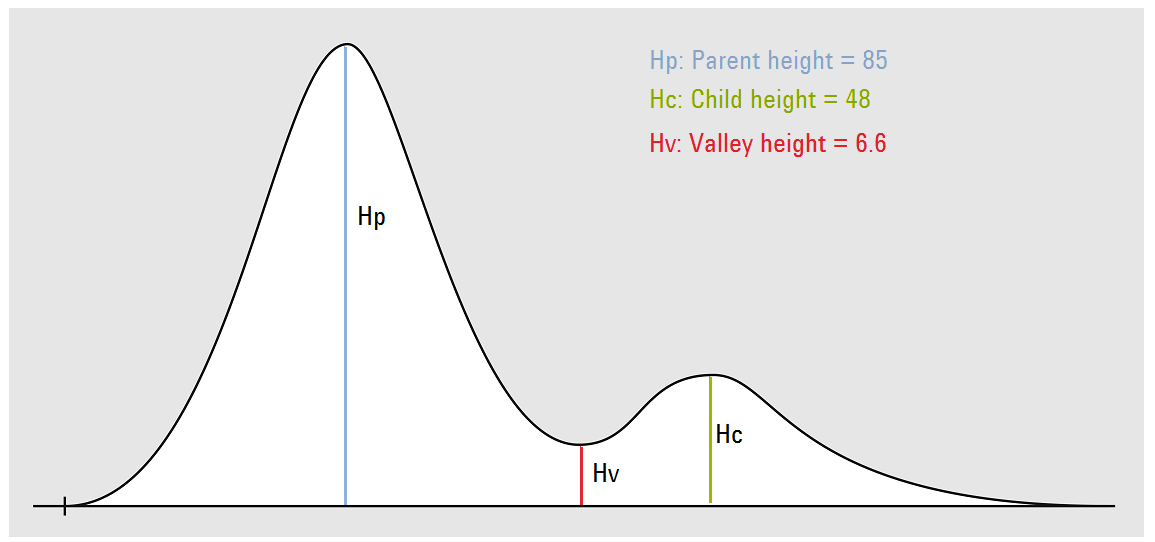Skim criteria
The following criteria determine whether a skim line is used to calculate the area of a child peak eluting on the leading or trailing edge of a parent peak:
-
Skim height ratio (Front skim height ratio or Tail skim height ratio)
Skim valley ratio
The skim height ratio is the ratio of the baseline-corrected height of the parent peak (Hp in the figure below) to the baseline-corrected height of the child peak (Hc). To have the child peak skimmed, use a value lower than this ratio. To disable exponential skimming throughout a run, you can set this parameter to a high value or to zero.
The skim valley ratio is the ratio of the height of the child peak above the baseline (Hc in the figure below) to the height of the valley above the baseline (Hv). To have the child peak skimmed, use a value greater than this ratio.
If one of these criteria is not met for a set of child peaks at the tail of the parent peak, all child peaks after the last child peak that met both criteria are not skimmed anymore but use a drop line |
These criteria are not used if a timed event for an exponential is in effect, or if the parent peak is itself a child peak. The baseline code between parent peak and child peak must be of type Valley (see Baseline codes). |
Skim height ratio = Hp / Hc
Skim valley ratio = Hc / Hv
where | |
Hp |
Baseline-corrected height of parent peak |
Hv |
Height of valley above the baseline |
Hc |
Baseline-corrected height of child peak |
Tail Skimming
To use tail skimming, you would set the parameters as follows:
Tail skim height ratio = 85 / 48 = 1.77
In the integration events, use a value < 1.77.
-
Skim valley ratio = 48 / 6.6 = 7.3
In the integration events, use a value > 7.3.
Front Skimming
With front skimming, the first peak is the child peak, and the second peak is the parent peak. Thus, to use front skimming, you would set the parameters as follows:
-
Front skim height ratio = 48 / 85 = 0.56
In the integration events, use a value < 0.56.
-
Skim valley ratio = 85 / 6.6 = 12.9
In the integration events, use a value > 12.9.
